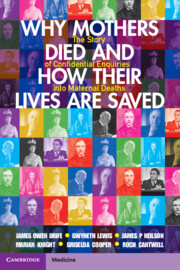Despite a long history of research on democratic backsliding, the process itself − in which the executive branch amasses power and undermines democratic processes and institutions − remains poorly understood. We seek to shed light on the underlying mechanisms by studying democratic near misses: cases in which a period of autocratic governance is quickly reversed or full backsliding is prevented at the last minute. Building on the literature on near misses in sociotechnical systems such as nuclear power plants, we adapt the drift-to-danger model to the study of democratic systems. Two key findings emerge: First, democratic backsliding is often triggered by political elites pushing the boundaries of their power by violating norms, which are crucial yet vulnerable safeguards for democracy. Second, democratic backsliding is unpredictable and non-linear, being driven by the interaction between political elites and the public. Norm-violating elites may feel legitimized by a supportive public that sees norm violations as justified. At the same time, political elites may signal that norm-violating behaviour is acceptable, potentially leading the public to adopt anti-democratic beliefs and behaviours. We identify risk factors that make norm violations more likely and outline behavioural sciences-based interventions to address these violations.
